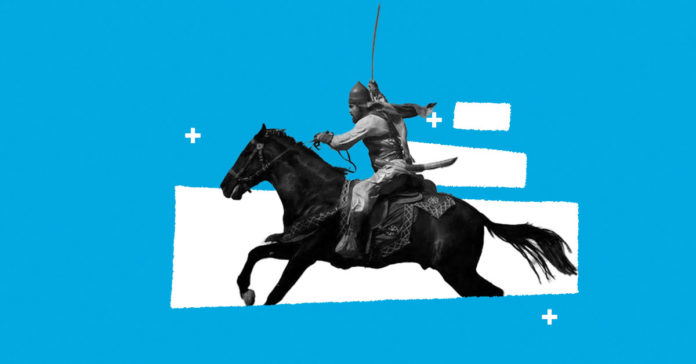The Companions of the Holy Prophet ﷺ were unique in the sense that religion, morality, social dynamism, politics, (i.e. all the diverse requirements of a civilized society) were mirrored in the most beautiful colours in their lives. There was no schism, no corroding lack of integration in their souls. Because of this, they were ideally suited to operate as stewards of humanity. We, consequently, find that no period in the recorded history of the human race has been more auspicious in its true sense than what is known among the Muslims as Khilafah ar-Rashidah (i.e. the reign of the first four Caliphs). During this epoch, all the material, moral and spiritual resources of man were brought into use to make him an ideal citizen of an ideal State. The Government was judged by the yardstick of morality, and morals were judged by their utility to lift humanity in permanent values and establishing justice in human society. Though the Islamic Commonwealth was the richest and the most powerful State of its time, the popular heroes and ideal personalities in it were drawn from among those who possessed not earthly glory, but purity and nobility. There was no disparity between power and morality. Material advancement was not allowed to overrun moral progress. That is why in the Islamic World the incidence of crime was very low in spite of the abundance of wealth and the great heterogeneity of its population. In short, this epoch was the most beautiful springtime mankind has experienced to this day.
All this was due to the moral strength of faith, excellence and the training of those who were at the helm of affairs in the Muslim State. In whatever capacity they served the State, they conducted themselves as the most perfect models of Islamic morality. Whether as administrators or petty officials, or as soldiers or policemen, they performed their duties with exemplary modesty, justice and piety.
The sterling character and qualities of the Muslim soldiers were once praised by a Roman officer in these words: “At night you will find them prayerful; during the day you will find them fasting. They keep their promises, order good deeds, suppress evil and maintain complete equality among themselves.”
Another testified thus: “They are horsemen by day and ascetics by night. They pay for what they eat in territories under their occupation. They are first to salute when they arrive at a place and are valiant fighters who just wipe out the enemy.”
A third said: “During the night it seems that they do not belong to this world and have no other business than to pray, and during the day, when one sees them mounted on their horses, one feels that they have been doing nothing else all their lives. They are great archers and great lancers, yet they are devoutly religious and remember God so much and so often that one can hardly hear talk about anything else in their company.”
It was because of this moral training that when the fabulous Crown and the “Carpet of Spring” of the Chosroes of Iran fell into the hands of Muslim soldiers after the victory of Mada’in, they promptly delivered them to their Commander, who dispatched them to the Caliph at Madinah. When the latter saw those articles, he was filled with admiration for the great integrity of the soldiers who had handed them over to their leader intact and for those who had brought them safely all the way to Madinah.
[Islam And The World by Abul Hasan Ali Nadwi, p.67-68.]









